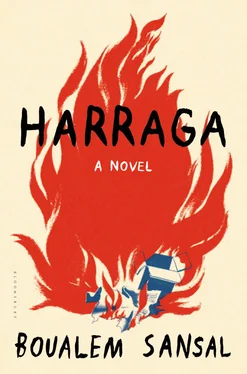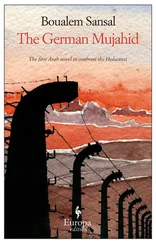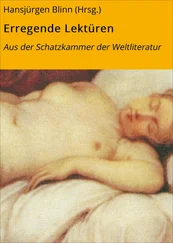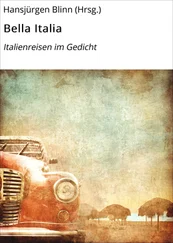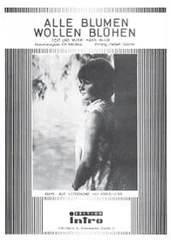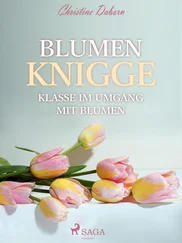Every time the truck slows and leaves the road, the harragas huddle together. The government does not take kindly to foreign intruders. They are beaten and then killed after a period working as slave labour for an officer. This is one of the perks offered to ranking officers, all of whom have palm groves that need tending or roofs that need mending.
The convoy arrives at the oasis town of El Oued, the ‘City of a Thousand Domes’. In the desert, it stops to visit a famous marabout , a bizarre old man, a dwarf in rags named sidi Abdelaziz who stands on solid-gold stilts and calls himself ‘El Mahdi’ — the Guided One. The little bastard has considerable influence, he hawks his bullshit prophecies from douar to douar and the people lap it up. His fame has spread far and wide, all the way to New York where people wonder what it’s all about. To some, he is a great prodigy, to others a vulgar charlatan. He looks to me like a lunatic, I thought, the first time I saw him shimmying around his kubba jabbering bits of marabout gibberish. Time is short. A confab takes place between the people smuggler and the master of the house. They high five, El Mahdi clicks his fingers and from a deep well hidden among the cacti, soaked to the skin, frantic and half-blind, twelve puny little runts appear. These are boys from the area around the fields who protested against poverty and found themselves being hunted down by the police and the Americans. They were looking for work, waving banners outside the Hassi Messaoud oil base. They have endured terrible dangers in order to get here to the meeting point, they have nothing but the clothes on their backs. ‘We will continue on foot, steering clear of the main roads,’ announces the smuggler. Northern Algeria is tightly controlled, there are roadblocks everywhere, and everywhere there are spies, barons, emirs, armed factions, dishonest officials, brazen bounty hunters. Dear God, what a journey, what terrors they must face; it’s enough to break your heart.
They trudge on for two weeks — a century and a half in any normal country. Long funeral marches between two alerts, two watches. The straggling group looks barely human now, a ragman would reject them. I felt wretched and ashamed as I watched them founder, unable to do anything to help.
Finally, just beyond the horizon, the border looms. On the far side is Morocco — the Kingdom of the Alaouites as they say in high places here in Algeria to imply God knows what. It is the same land, the same sun, the same peoples practising the same religion, the same food; but there the air is different, there a man can breathe. The group feels a sense of relief, this is like stepping into a picture postcard, one of the hand-tinted photos of long ago so charmingly idyllic that tourists felt a sudden need to siesta in the shade of a palm tree, or saddle the nearest donkey. All along this uncertain line established in endless treaties, everyone is in the business of contraband and smuggling; under the watchful gaze of both armies, oil is exchanged for kif . The soldiers keep a friendly eye on each other, a state of war with no war; it is a godsend, everyone gets to line their pockets and no one gets hurt.
The harragas are making good progress. Like them, the viewers are eager to cross the finish line. Another hairpin bend or two and we find ourselves in a withered pine forest on the outskirts of the Spanish exclave Ceuta, which in a former life was the walled city of Abyla. Hundreds of harragas live here, some have been here for several years. They have clearly put down roots: tents and shacks have sprung up everywhere, pots and pans hanging from the branches tinkle among the pine trees. The camera does a sweep of the location. A quick interview with one person, then on to another. Endless tales of harragas . The camp is segregated according to skin colour, nationality, religion, dialect and tribe. This is old-fashioned racism; peoples live cheek by jowl without acknowledging each other. As the camera prowls the Algerian quarter, I keep my eyes peeled. Every boy there looks just like Sofiane, same age, same pathetic affected air, but of Sofiane himself, there is no sign. I felt both disappointed and relieved. Each group has its own territory, its own survival strategy, its plans for freedom. Some have their sights set on Ceuta itself, others are merely passing through, heading for Tangiers, the gateway to Tarifa. This was what Ahmadou and Abu-Bakr were planning. They have come too far to spend all eternity picnicking in a pine forest. The film’s epilogue was devoted to them. Having survived the sandstorms and the vastness of the desert, they died in the arms of the sea within swimming distance of the Spanish coast. Only a young Togolese girl, beautiful as the sun at noon, set foot upon the promised land. Death must have realised that taking two wretched lives for the price of one was too unfair.
They come from afar
Seeking the impossible
Bellies empty, bodies taut with truth.
As they advance
Time flees before them
And behind them the corpses pile higher.
The sun wheels in the sky
Not a soul must escape
All must die before nightfall.
And so they die in their shadows
The wind gathers their bones
And with the earth, so turns the millstone.
The film ends with a long pull-back shot of the Ténéré while a haunting threnody comes from the heavens, from the oppressive, boundless, ochre sky. A funeral lament. Eyes close and we hear a final prayer as the ad break arrives with tips on how to make money in the capital which reminds me of Jean Yanne’s film Tout le monde il est beau, tout le monde il est gentil , prophets come and go, but advertising is for ever.
I was exhausted, I felt dirty, tattered, lost in thoughts of Sofiane, of Ahmadou and Abu-Bakr, of the young Togolese girl with the pretty face, and all those flailing in the background. My mind was in turmoil, lightning flashes, waves of sand as high as the Himalayas, the stench of sweat and shit, the chattering of TV commercials, the screams of the insane. It is terrible how painful noise can be in a universe of silence. One must love life to suffer so much. One must love death to court it so assiduously. Where does evil come from? What goes on in our heads?
I spent the whole night fretting.
Sofiane had everything, he had a house, he had my affection, he had friends, he had a routine. What about the rest? You can’t live on love alone when you’re imprisoned . Try as I might, I can’t work it out, but it is not always possible to name the thing that kills. The daily hardship? The all-idiocy? Yes, these play a part, but there are more powerful reasons: corruption, religion, bureaucracy, the culture of crime, of violence, of clannishness, the veneration of death, the glorification of the tyrant, the love of ostentation, the passion for strident sermons. Is that all? There are those who set a bad example. It comes from the top, from a government that mistakes ignorance for a priceless diamond; barbarism for sophistication; shoddy policies for brilliant statesmanship misappropriation of funds for legitimate disbursements. Oh, the bastards; oh, the stink of corruption! What about the intelligentsia, what do they have to say? They’re not all dead . What do you want them to say? They’re in prison, begging for a blanket and a piece of bread like everyone else. What about the heroes, the veterans, the hard nuts who revelled in the war? Oh, you poor deluded fool — they’re fossils now, their memories belong to others who rake in lots of cash. So is that all? No, there are the walls collapsing, the disasters the government has signed us up for, and the fear, the dreadful fears of a static life. What is left when all routes are cut off?
Читать дальше
